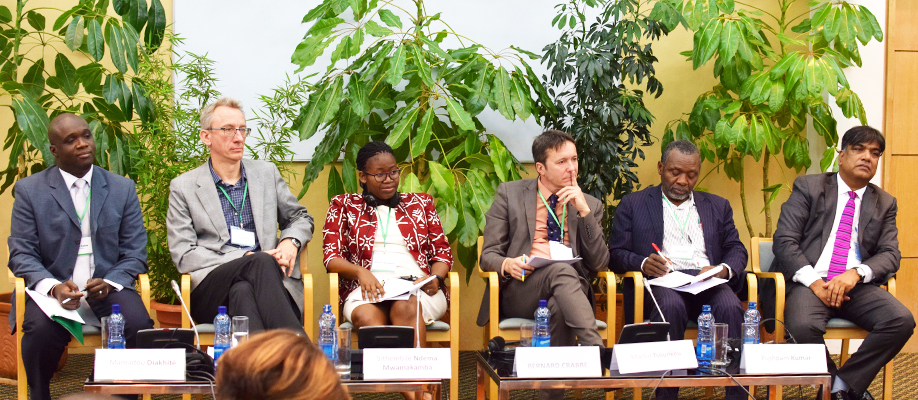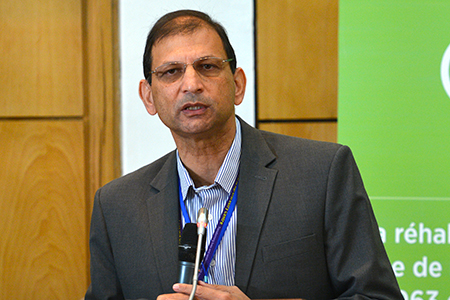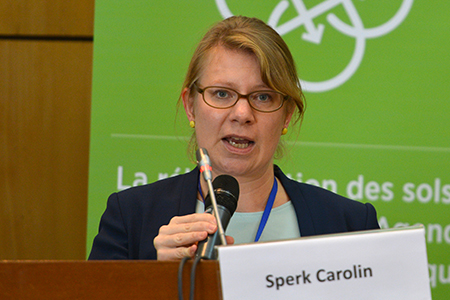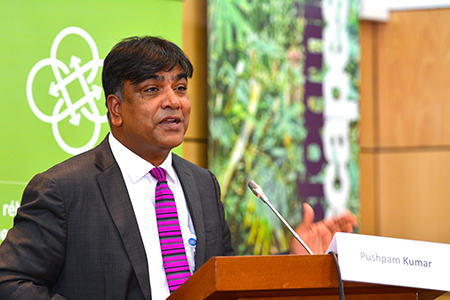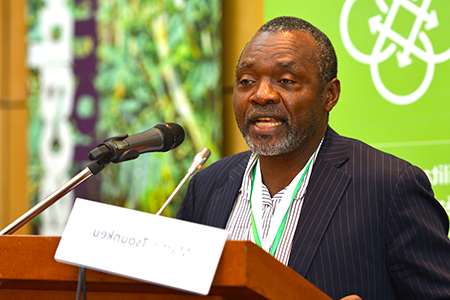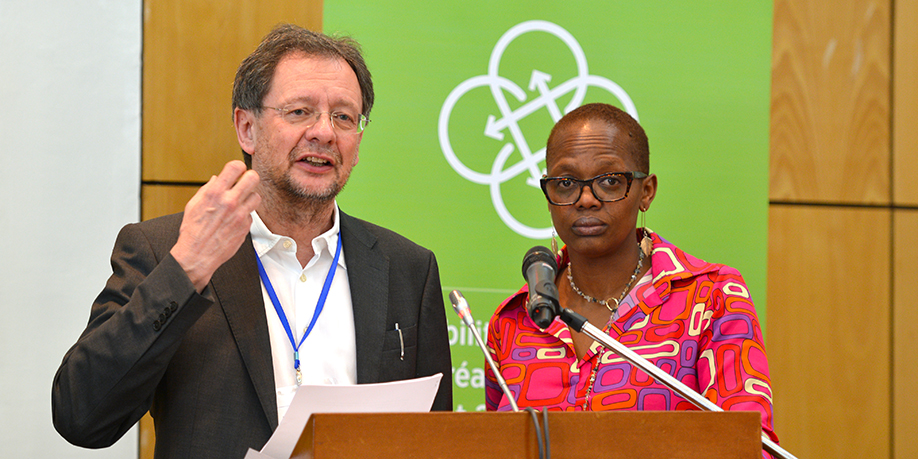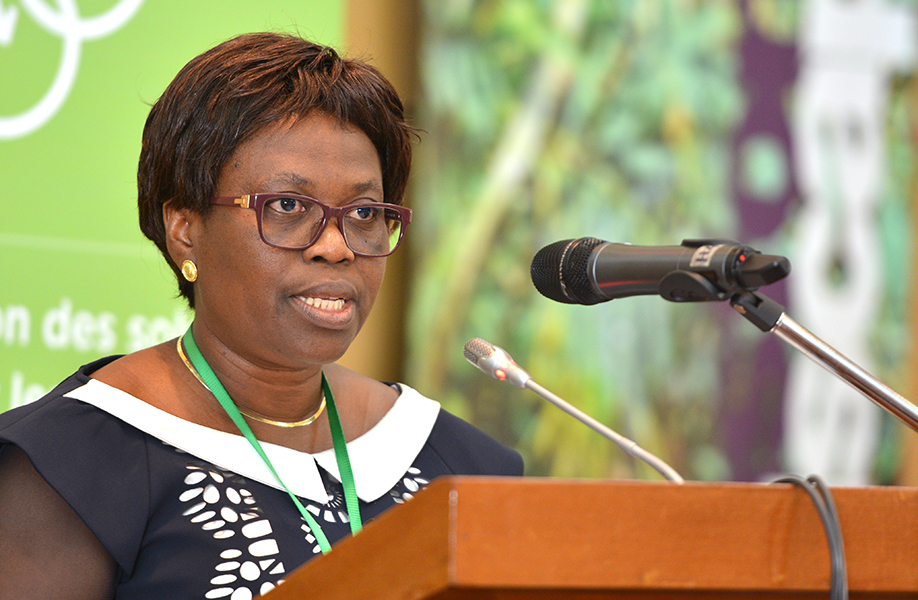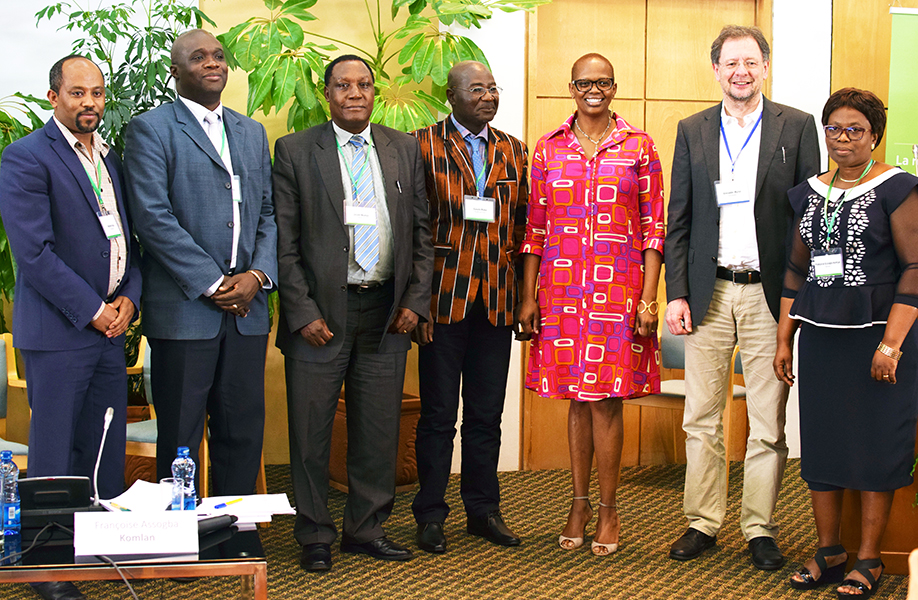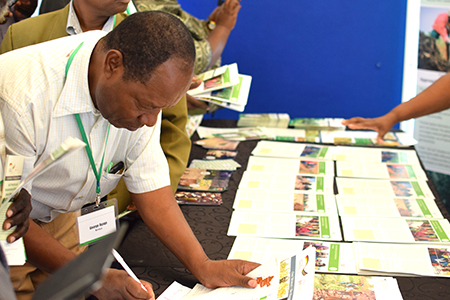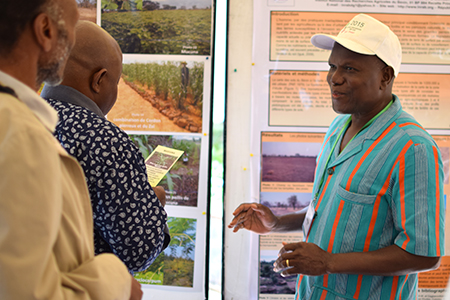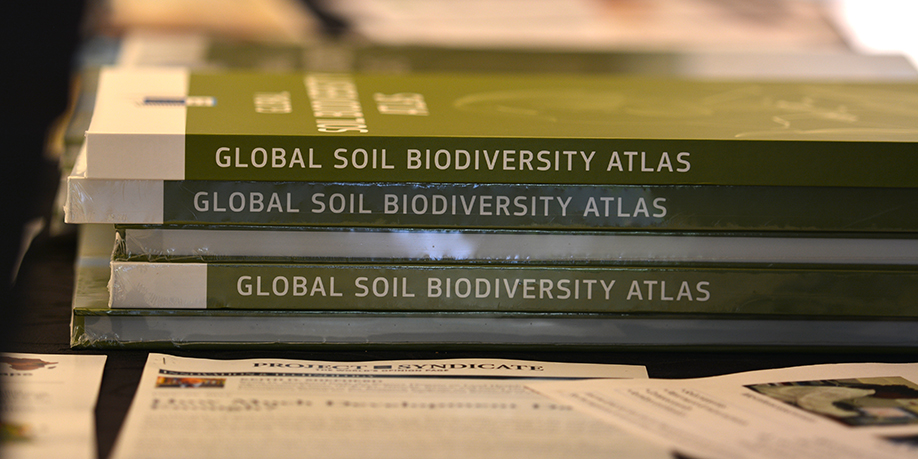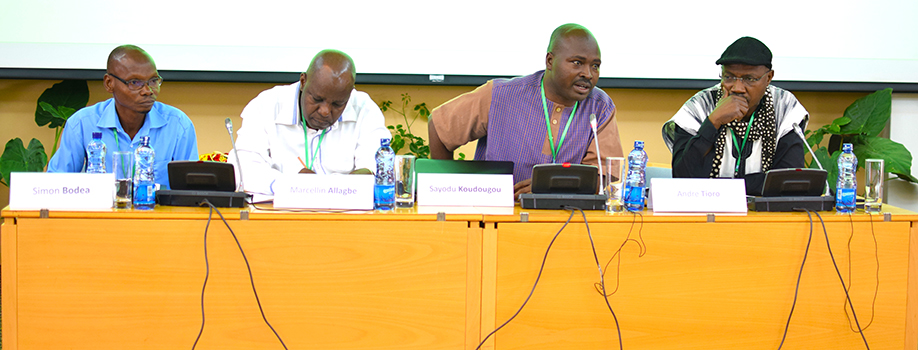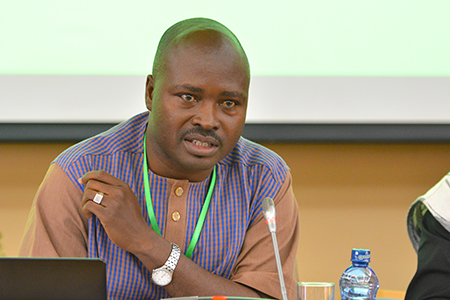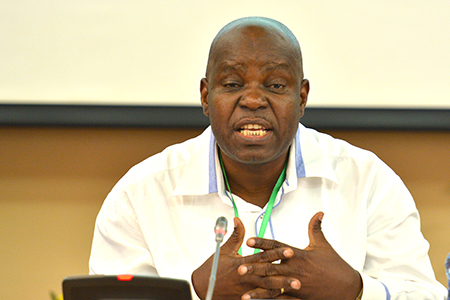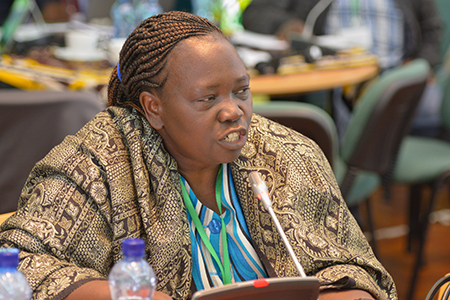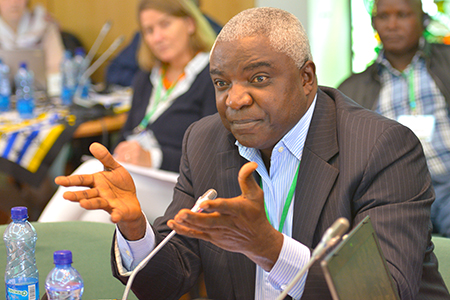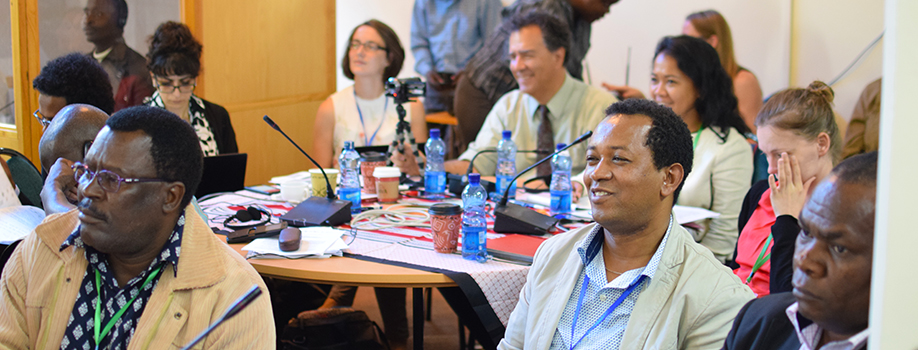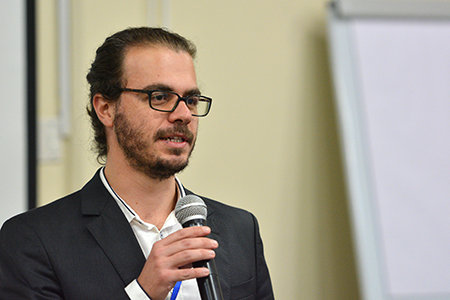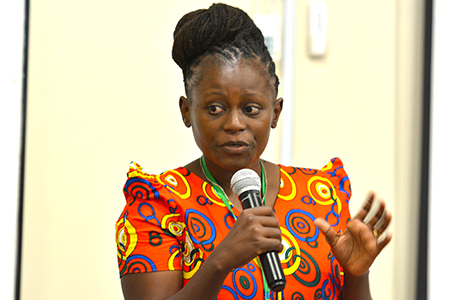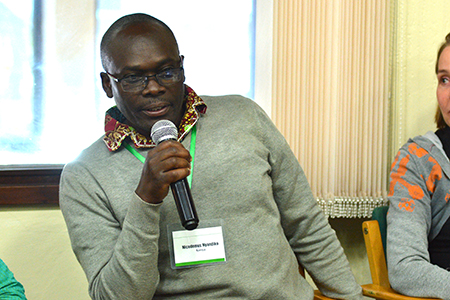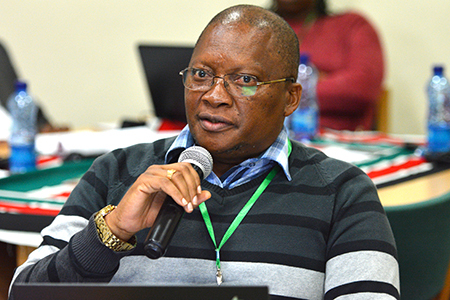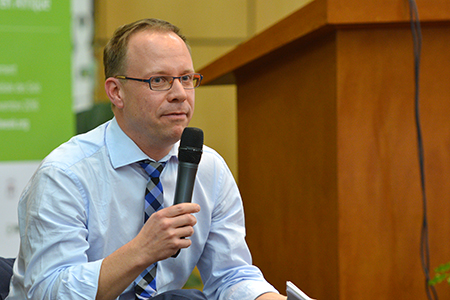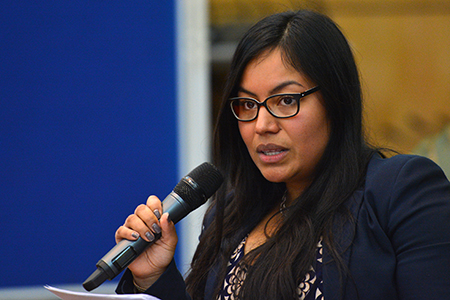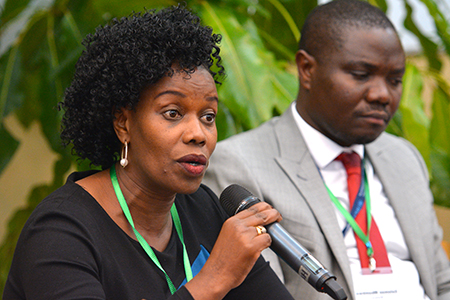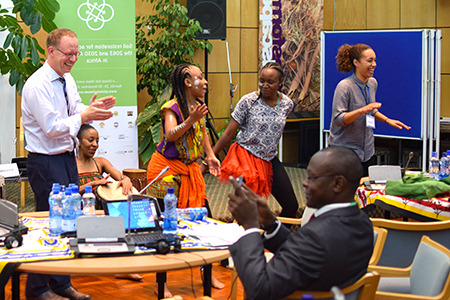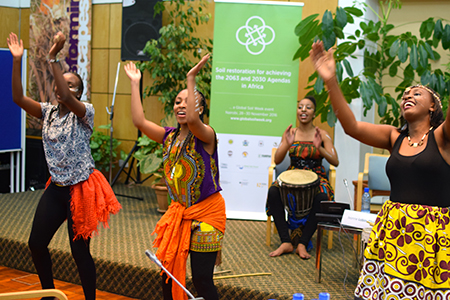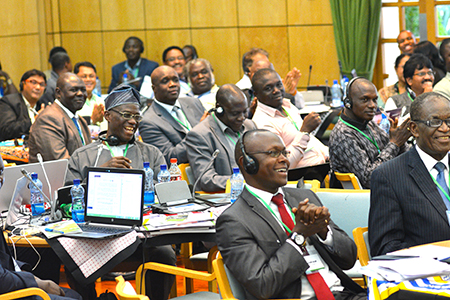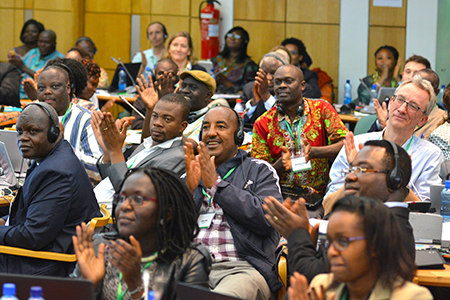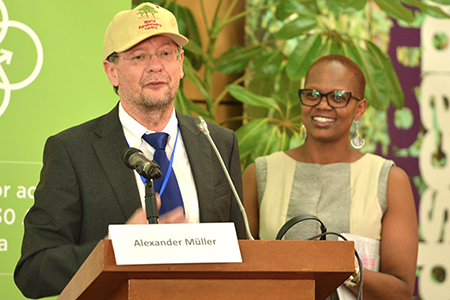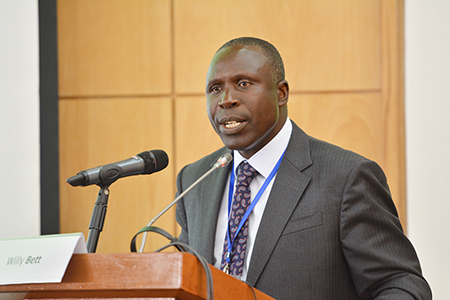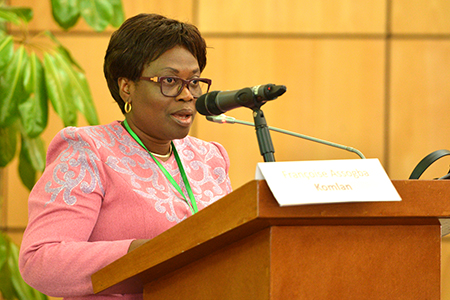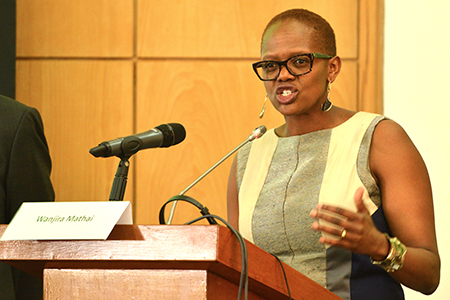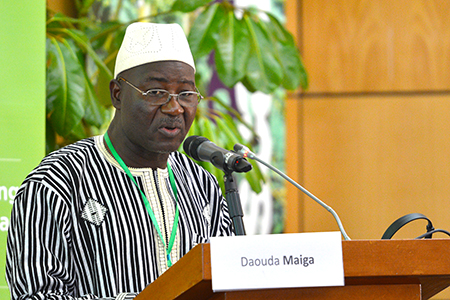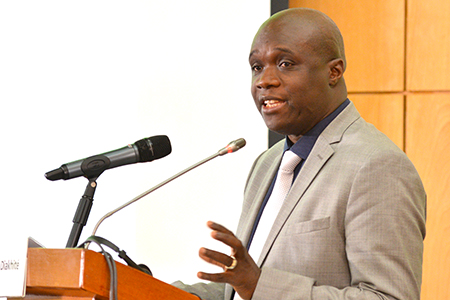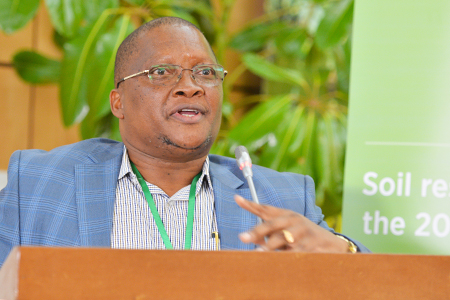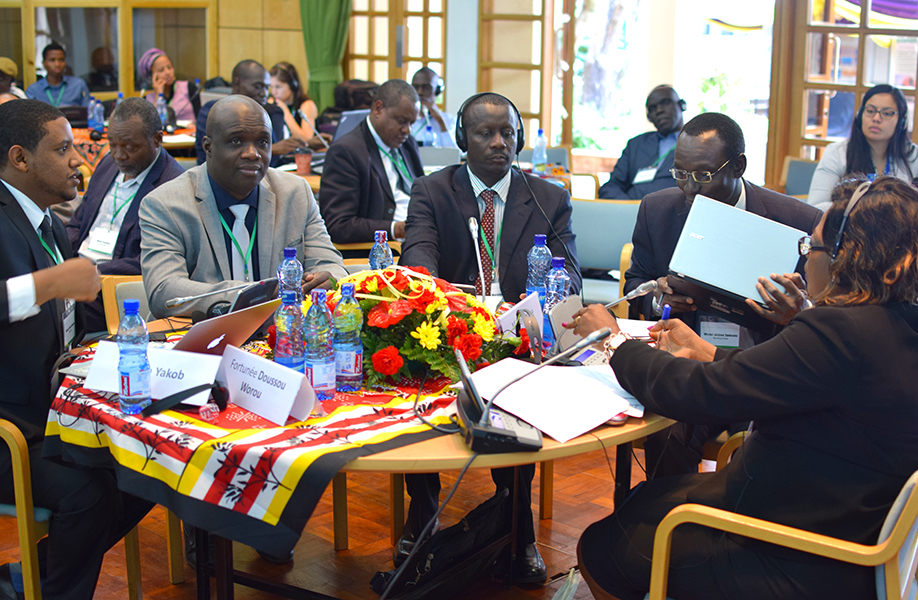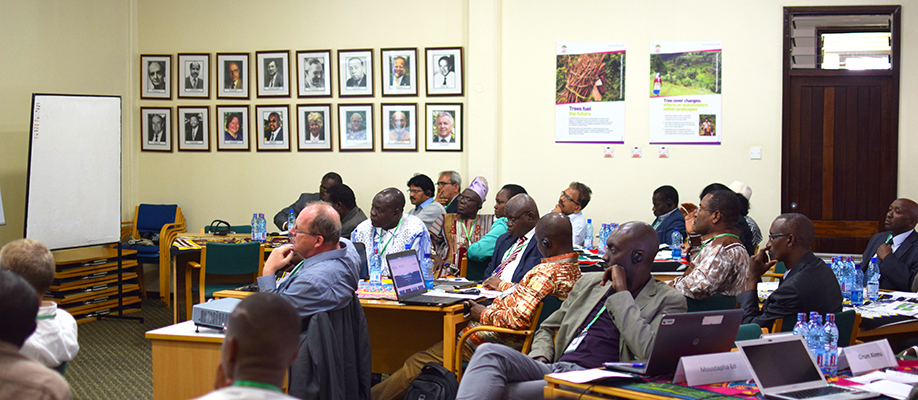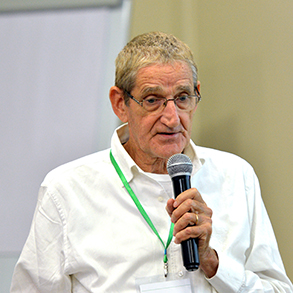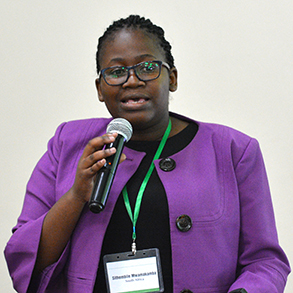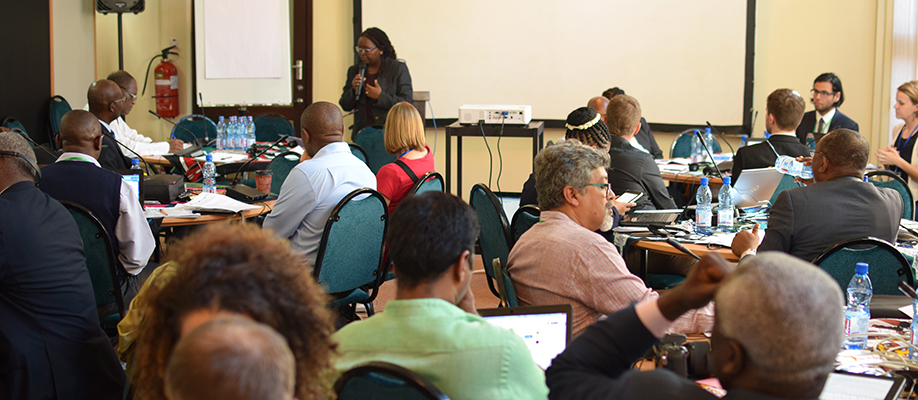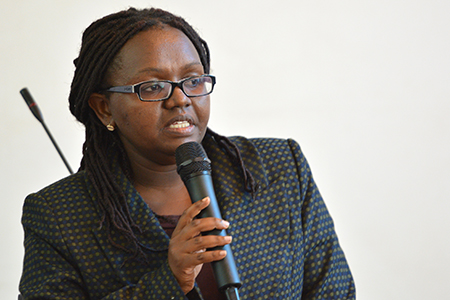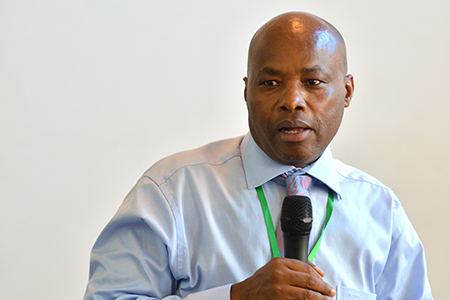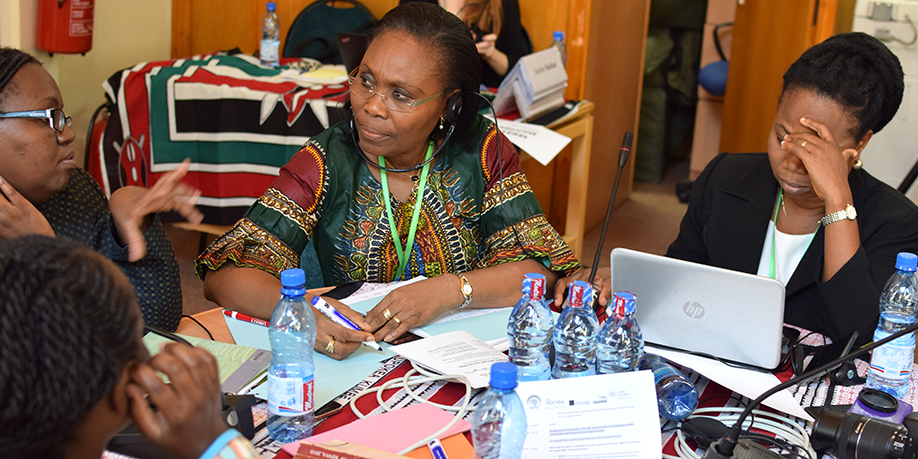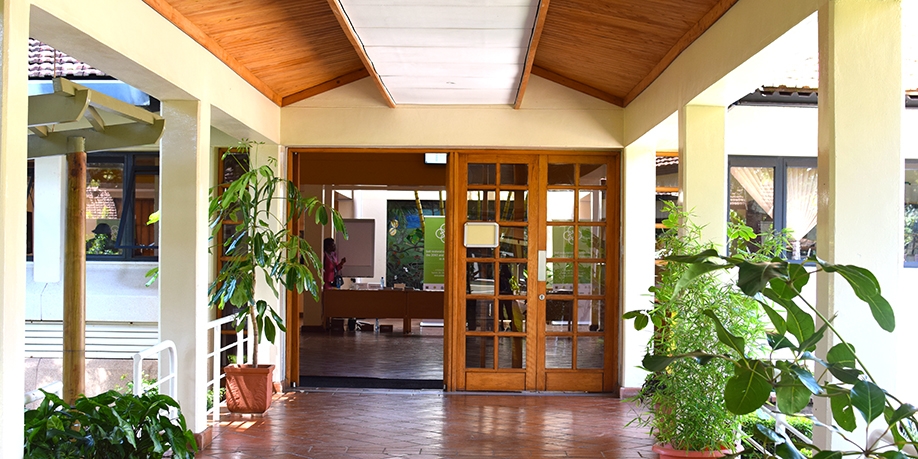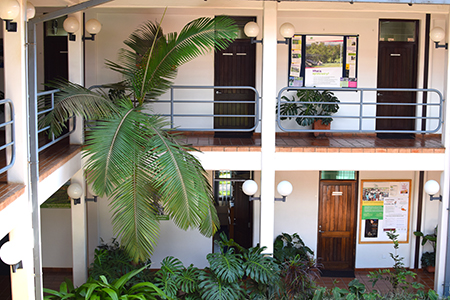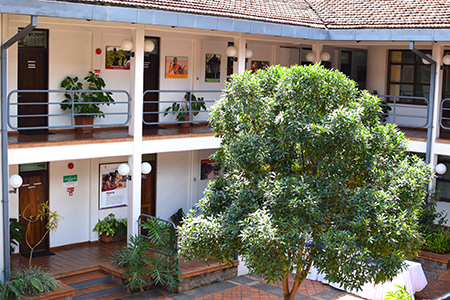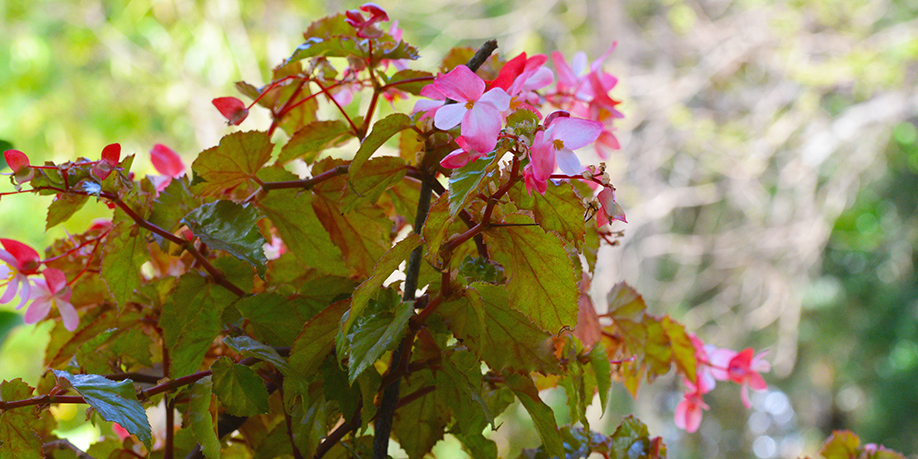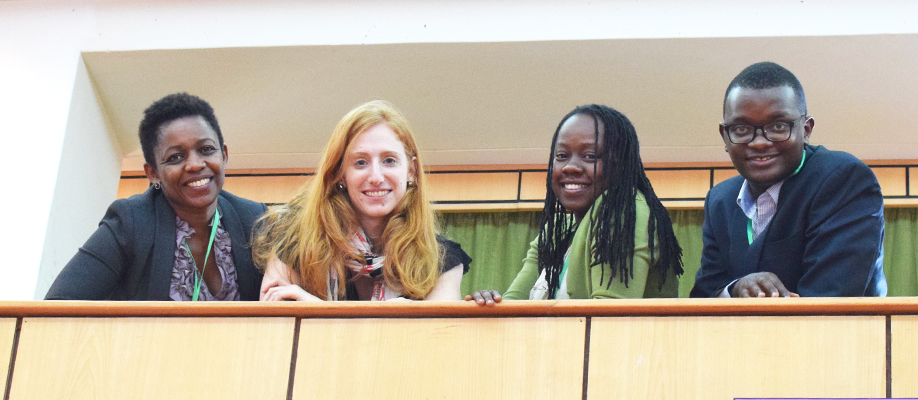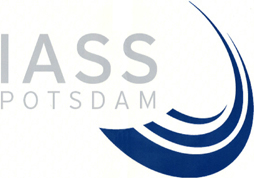African Soil Seminar - Soil Restoration for Achieving the 2063 and 2030 Agendas in Africa:
Linking Global Ambitions to Local Needs
28-30 November 2016 | Nairobi, Kenya
Summary Highlights: 28 - 30 November 2016
Download ENB+ Meeting Report |
||||||||
Receive our ENB+ bulletins and reports by email: |
||||||||

| Follow @iisdrs | ||
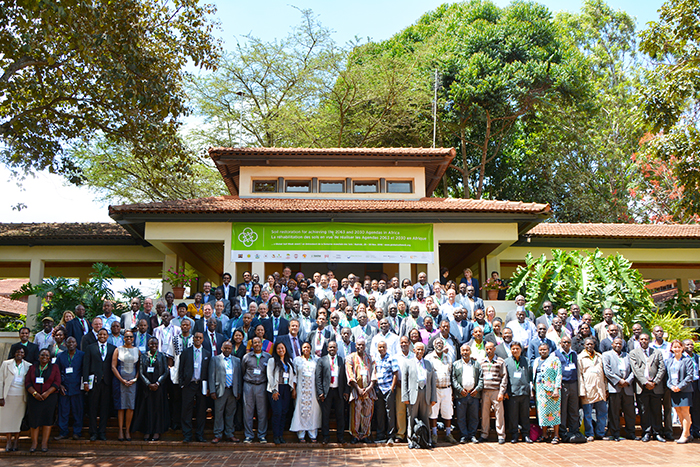
Participants of the First African Soil Seminar |
||
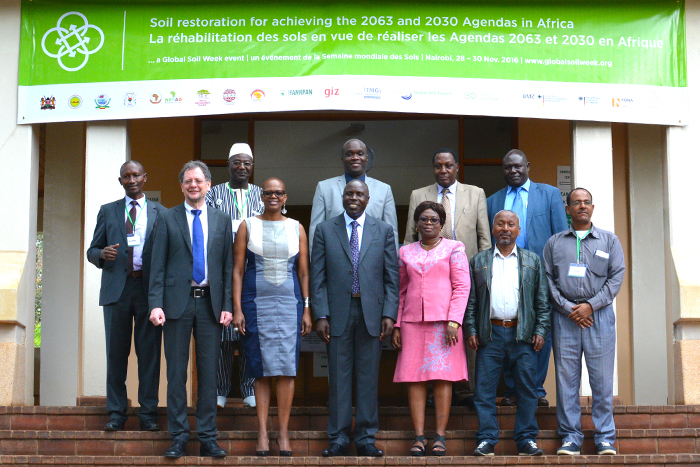
|
|||
|
The inaugural regional meeting of African soil and land management stakeholders concluded on Wednesday 30 November 2016 at the World Agroforestry Centre (ICRAF) headquarters in Nairobi. The Seminar was convened by the Global Soil Forum at the Institute of Advanced Sustainability Studies (IASS) Potsdam, and ICRAF, with support from the German Federal Ministry for Economic Cooperation and Development. It was co-hosted by ministries in charge of agriculture of Kenya, Ethiopia, Benin and Burkina Faso, as well as the New Partnership for Africa's Development (NEPAD) Agency. |
||
|
IISD Reporting Services, through its ENB+ Meeting Coverage, has provided a summary of the African Soil Seminar on the 3rd of December 2016, which is available in HTML and PDF. | ||
Highlights for Wednesday, 30 November 2016
On the third and final day of the first African Soil Seminar, a high-level plenary session convened to address the topic, ‘Financing Soil and Landscape Restoration: Implementing the Addis Ababa Action Agenda.’ Building on the thematic discussions on financing land restoration on Tuesday, the session, which was facilitated by the World Agroforestry Centre (ICRAF) Deputy Director-General Ravi Prabhu, discussed how to leverage the catalytic role of public resources to encourage increased investments in soil rehabilitation and benefit food-insecure farmers. During a brief closing session, representatives of the five Co-Hosts – the governments of Kenya, Ethiopia, Benin and Burkina Faso as well as the NEPAD Agency – presented a joint statement signaling their commitment to continue to promote land restoration efforts in their countries and the region as a whole. The Seminar’s Co-Chairs, Wanjira Mathai and Alexander Müller, then presented a summary of their ‘Chairs’ Conclusions,’ highlighting key issues discussed at the Seminar. An informal session of knowledge exchange at the “Marketplace of SLM Methods,” also took place, showcasing innovative technologies and approaches to soil and land restoration. The Seminar concluded with an afternoon of “walking debates” around various Nairobi locations, facilitated by local community mobilizers, scholars and civil society organizations. A new addition to the Global Soil Week, the walks aim to encourage reflection on emerging sustainability themes, such as how to make food accessible and nutritional, and how to encourage healthier behaviors that integrate an understanding of climate change. |
||
+ IISD Reporting Services, through its ENB+ Meeting Coverage, will provide a Summary Report of the African Soil Seminar on the 3rd of December 2016. |
||
Plenary on Financing Soil and Landscape Restoration: Implementing the Addis Ababa Action Agenda
|
|
|
|
High-level Closing Statements: Towards 2030 and Beyond: Moving on Jointly
|
|
|
SLM Technologies Marketplace
|
|
|
|
Highlights for Tuesday, 29 November 2016
The second day of the African Soil Seminar opened with three parallel thematic sessions. The first session discussed the links between land governance and sustainable land management in Africa, drawing on lessons from Benin and Burkina Faso. The second session explored opportunities to bridge the shortfall in funding commitments for land and soil restoration, such as the estimated US$150 billion required to restore 150 million hectares of agricultural land in order to contribute to the food security aim of the New York Challenge. The session also highlighted the recently launched Land Degradation Neutrality (LDN) Fund, an initiative of the Global Mechanism of the UN Convention to Combat Desertification (UNCCD), which seeks to leverage public funds with private capital. The third session discussed how to design and address food policies through youth programmes and involvement that respond to the challenge of severe hunger and food insecurity that is faced by millions of people around the world, especially in Africa. In the afternoon, a High-Level Plenary convened to discuss the next steps, supporting policies, and partnerships necessary to ensure holistic and effective follow up and review of implementation of the African Union's Agenda 2063 and the Sustainable Development Goals. The discussions explored, among other questions: the kinds of information and knowledge needed to ensure effective monitoring of sustainable land and soil management targets; how to ensure that this information is made available to the poorest and most vulnerable communities; and how to incorporate a wide range of stakeholders into monitoring, follow-up and review mechanisms, especially in the face of a shrinking space for civil society in many countries. |
||
+ IISD Reporting Services, through its ENB+ Meeting Coverage, will provide a Summary Report of the African Soil Seminar on the 3rd of December 2016. |
||
Thematic Session on Land Governance and Sustainable Land Management in Africa: What Lessons to Draw?
|
|
|
|
|
Thematic Session on Making Investments in Soil Rehabilitation Count for Food Insecure Farmers
|
|
Thematic Session on Food Security Policies for 2030
|
|
|
|
Plenary on Measuring What Matters: What Knowledge do We Need to Ensure That We Are Moving Forward?
|
|
|
|
|
|
|
|
|
Highlights for Monday, 28 November 2016
The first Global Soil Week regional meeting, convening African soil and land management stakeholders, opened today at the World Agroforestry Centre (ICRAF) headquarters in Nairobi, Kenya. The three-day meeting will address the theme, ‘Soil Restoration for Achieving the 2063 and 2030 Agendas in Africa: Linking Global Ambitions to Local Needs.’ The final thematic session was facilitated by the Network of African National Human Rights Institutions (NANHRI), Katiba Institute, Kenya, Deutsches Institut für Menschenrechte (DIMR), and Töpfer, Müller, Gaßner – ThinkTank for Sustainability (TMG). Participants discussed possible designs for nationally owned, multi-stakeholder monitoring and learning processes that bridge the gap between international and national policy aspirations to improve land governance for vulnerable and marginalized people.
|
||
+ IISD Reporting Services, through its ENB+ Meeting Coverage, will provide a Summary Report of the African Soil Seminar on the 3rd of December 2016. |
||
Plenary I: Harnessing Soil Policies for the 2063 and 2030 Agendas
|
|
|
|
|
|
|
|
|
Soil Carbon for Climate and Development
|
Soil and Landscape Restoration for Water Security
|
|
|
|
Human Rights-Based Monitoring & Learning Processes for Responsible Land Governance
|
|
|
|
Around the Venue
|
|
|
|
|
|
